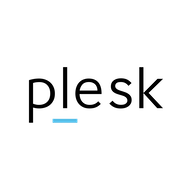tkalfaoglu
Silver Pleskian
- Server operating system version
- AlmaLinux
- Plesk version and microupdate number
- Obsidian
Hi there. I noticed a high CPU usage in a server of ours and went to check it..
We are getting hit hard by the google bots.. the access_ssl_log contains thousands/millions of entries like:
I checked the IP and it is google indeed. I checked the settings why nginx is not being used for these innocent queries (the log file proxy_access_log file is not being used much), and although the nginx/apache settings are very permissive for this domain, they are not used:
[ ] HTTP no-cache headers are received in request
[X] HTTP authorization headers are received in request
[ ] GET nocache parameter is received in request
Any ideas what to do and how to channel these "attacks" to nginx instead?
Thanks! -t
We are getting hit hard by the google bots.. the access_ssl_log contains thousands/millions of entries like:
66.249.66.204 - - [14/Nov/2022:13:18:57 +0300] "GET /index.php?rp=%2Fknowledgebase%2Ftag%2Fbar%C4%B1nd%C4%B1rmalanguage%3Dturkishlanguage%3Destonianlanguage%3Dgermanlanguage%3Destonianlangu
age%3Ddutchlanguage%3Dromanianlanguage%3Destonianlanguage%3Dczechlanguage%3Dukranianlanguage%3Dhungarianlanguage%3Darabiclanguage%3Dczechlanguage%3Dukranianlanguage%3Dswedishlanguage%3Dport
uguese-ptlanguage%3Dromanianlanguage%3Dczechlanguage%3Dportuguese-brlanguage%3Dczechlanguage%3Drussianlanguage=ukranian HTTP/1.0" 200 7070 "-" "Mozilla/5.0 (Linux; Android 6.0.1; Nexus 5X B
uild/MMB29P) AppleWebKit/537.36 (KHTML, like Gecko) Chrome/107.0.5304.110 Mobile Safari/537.36 (compatible; Googlebot/2.1; +What Is Googlebot | Google Search Central | Documentation | Google Developers)"
I checked the IP and it is google indeed. I checked the settings why nginx is not being used for these innocent queries (the log file proxy_access_log file is not being used much), and although the nginx/apache settings are very permissive for this domain, they are not used:
[ ] HTTP no-cache headers are received in request
[X] HTTP authorization headers are received in request
[ ] GET nocache parameter is received in request
Any ideas what to do and how to channel these "attacks" to nginx instead?
Thanks! -t

